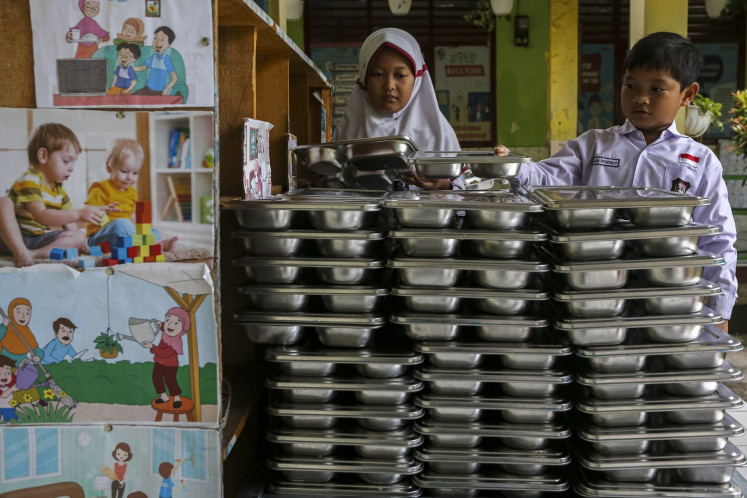New bylaw to regulate waste management endorsed
After 25 years, the city has finally renewed its bylaw on waste management, this time highlighting the obligations of individuals, corporations and the government
Change text size
Gift Premium Articles
to Anyone

A
fter 25 years, the city has finally renewed its bylaw on waste management, this time highlighting the obligations of individuals, corporations and the government.
The bylaw, which was mandated by Law No. 18/2008 on waste management, was endorsed by the city council last week. With 139 articles, the new bylaw is more detailed than the older Bylaw No. 5/1988 that has 33 articles.
The new bylaw will be the foundation for the master plan to address the capital city's waste management, said Jakarta Sanitation Agency head Unu Nurdin who will lead the dissemination of the new bylaw to the public in the final quarter of the year.
Home to some 10 million people at night and 12 million by day, Jakarta produces an average of 6,500 tons of garbage everyday and heavily depends on Bantar Gebang open landfill in Bekasi, West Java.
The new bylaw regulates the use of technology; community involvement in garbage management; responsibility of producers; and cooperation with private partners.
The list of forbidden littering actions has been extended from locations such as on public space, rivers and sewage system to include littering on the street. A violation is punishable with a fine of Rp 500,000 (US$54) compared to the current fine of Rp 50,000.
Residents are to be given a greater responsibility; they will be obliged to separate organic and non-organic waste or face a punishment stipulated by the community unit (RW) as regulated by Article 127.
A penalty of Rp 100,000 will also be slapped on those throwing garbage in the integrated waste treatment plant and the final dumping site outside the picking-up schedule of 4 p.m. to 9 p.m.
Producers are now obliged to manage products or packaging that do not decompose naturally or they will face a penalty between Rp 25 million to Rp 50 million.
Article 97 of the new bylaw allows the city administration and the public to work with private businesses to manage waste in the capital.
'The city administration and communities can work with private businesses to manage waste in their respective areas,' Unu said, adding that the city administration would focus on building temporary dumps for each community unit.
He said the agency allocated Rp 20 billion to buy 80 new garbage trucks this year. Most of their garbage trucks have operated for 30 years. Around 30 percent of 700 trucks in the agency are in need of replacement.
The new bylaw also regulates the use and development of environmentally friendly technology to manage trash. The city plans to build a number of Intermediate Treatment Facilities (ITF) in Sunter and Marunda in North Jakarta and in Semanan, West Jakarta, in addition to the ITF in Cakung Cilincing.
'The ITF will each have the capacity of 1,500 tons of waste,' Deputy Governor Basuki 'Ahok' Tjahaja Purnama said, adding that the Sunter ITF might be completed within two or three years.
The Cakung Cilincing ITF started operating in August 2011 using Mechanical Biological Treatment technology. It recycles inorganic waste and produce energy for electricity from the organic waste. It treats some 1,300 tons of garbage and produces 4.95 MWh of energy.









